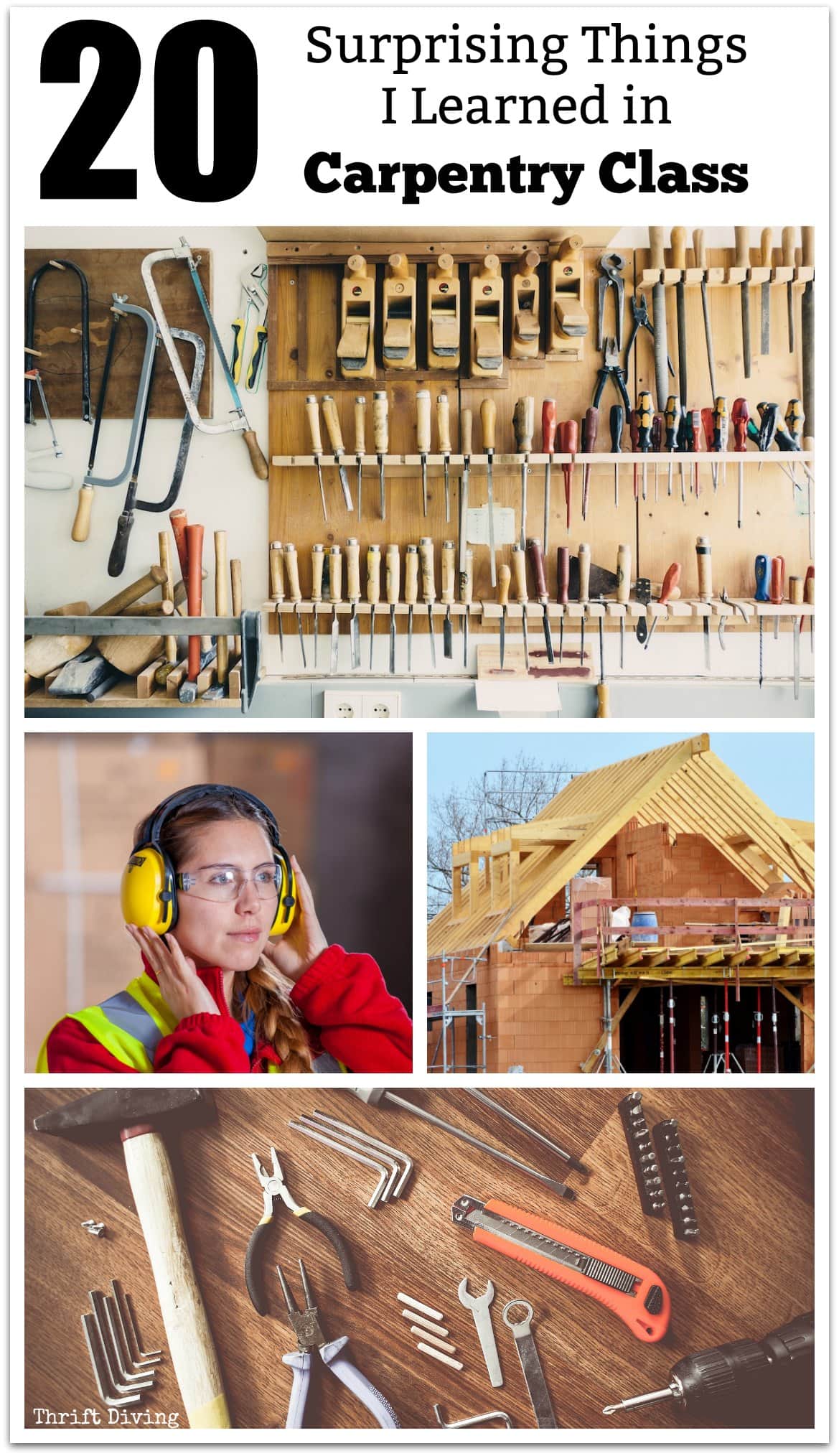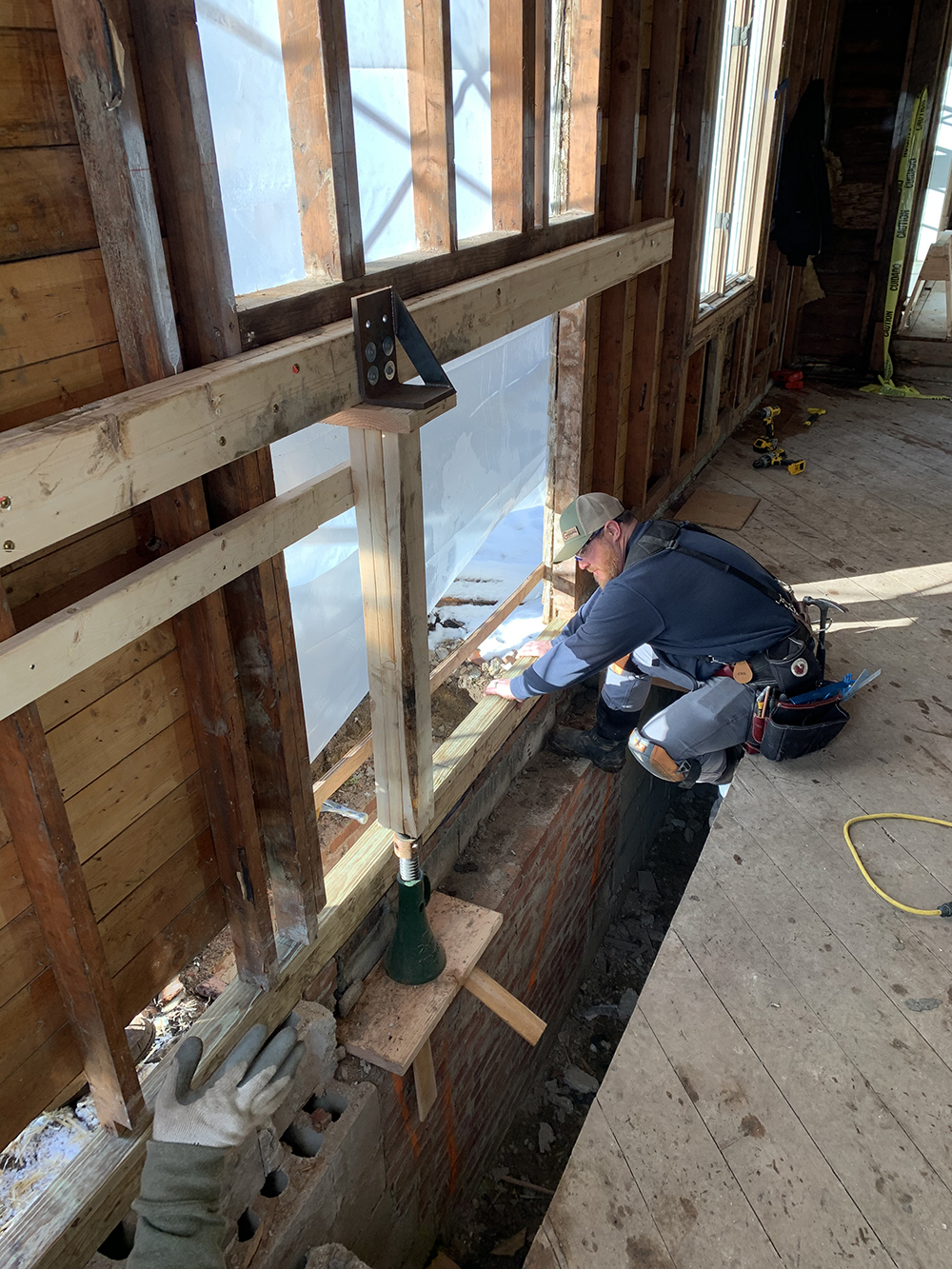If you’ve ever wondered what you can learn in carpentry, you’re in the right place! Carpentry is a fascinating trade that opens up a world of practical skills and creative possibilities. From mastering the use of tools to constructing structures, carpentry offers a range of exciting opportunities. So, let’s dive in and explore what you can expect to learn in carpentry!
When you embark on a journey in carpentry, you’ll begin by learning the basics. You’ll discover the different types of wood, how to read blueprints, and the essential tools of the trade. As you progress, you’ll delve into the art of measuring, cutting, and shaping wood, honing your skills in precision and craftsmanship. Along the way, you’ll also pick up knowledge about safety procedures and best practices to ensure a secure and efficient work environment.
But it doesn’t stop there! Carpenters also learn about various construction techniques like framing, joinery, and cabinetry. These techniques allow you to build anything from houses and furniture to intricate wooden structures. In addition, you’ll gain expertise in problem-solving and design, as carpentry requires creative thinking and adaptability. With each project you undertake, you’ll enhance your skills and become equipped to tackle more complex and rewarding carpentry ventures.
So, if you’re ready to get your hands on some tools and unleash your creativity, carpentry is the perfect path for you. Whether you’re interested in pursuing a career as a carpenter or simply want to develop practical skills, this versatile trade offers a world of opportunities to learn and grow. Let’s embark on this carpentry journey together and discover the wonders of woodworking!

What Do You Learn in Carpentry: The Essential Skills and Knowledge
Welcome to the world of carpentry! Whether you’re an aspiring carpenter or simply curious about the trade, understanding what you can learn in carpentry is vital. Carpentry is a centuries-old craft that involves working with wood to construct, install, and repair various structures. From residential homes to commercial buildings, carpenters play a crucial role in creating functional and aesthetically pleasing spaces. In this article, we’ll delve into the fundamental skills and knowledge you can gain through carpentry education and experience.
The Basics of Carpentry: Foundation for Success
Every carpenter starts with the basics. From understanding the different types of wood to learning how to use hand tools and power tools effectively, the foundation of carpentry education covers it all. In the early stages of your carpentry journey, you’ll familiarize yourself with essential woodworking techniques such as measuring, cutting, and joining wood. You’ll also learn how to read and interpret blueprints and construction drawings, which are crucial for accurately implementing design plans.
As you progress, you’ll delve into more advanced topics such as framing, finishing, and cabinetry. Framing involves constructing a structure’s skeletal framework, which includes tasks like erecting walls, installing beams, and creating roof systems. Finishing, on the other hand, focuses on the final touches of a project, such as sanding, staining, and applying protective coatings. Cabinetry provides a specialized set of skills, focusing on the construction and installation of beautiful and functional cabinets. The basics of carpentry lay the groundwork for your future as a skilled craftsman.
The Science and Math Behind Carpentry
Carpentry isn’t simply about working with wood; it also incorporates science and mathematics. Understanding the scientific principles behind the materials you work with is essential for ensuring structural integrity and safety. You’ll learn how to calculate the weight-bearing capacity of different wood types, determine load distribution, and account for factors such as humidity and temperature.
In addition to science, mathematics is a vital skill for carpenters. Measuring accurately and calculating dimensions are crucial for cutting pieces to the right size and ensuring precision in your work. You’ll learn about geometry, trigonometry, and algebraic concepts that contribute to the accurate execution of carpentry projects.
Specializations in the Field of Carpentry
While carpentry encompasses a broad range of skills, there are various specializations that carpenters can pursue. Some popular specializations include:
- Residential Carpentry: Focusing on building and renovating homes, this specialization involves tasks such as installing doors and windows, building decks, and constructing interior structures.
- Commercial Carpentry: Involved in the construction of large-scale buildings, commercial carpenters handle tasks like forming concrete, installing scaffolding, and constructing frameworks for commercial structures.
- Furniture Making: This specialization hones your skills in creating custom furniture pieces, whether it’s crafting intricate chairs, beautiful tables, or unique cabinets.
These specializations require additional training and experience to master the specific techniques and skills involved.
Building a Strong Work Ethic: Soft Skills for Success
While technical skills are essential in carpentry, developing a strong work ethic and soft skills is equally important. Carpentry often involves working as part of a team, collaborating with other tradespeople and contractors to complete projects. Effective communication, problem-solving, and time management skills are crucial in ensuring projects run smoothly and efficiently.
Moreover, a strong work ethic goes hand in hand with success in carpentry. Carpentry requires physical strength, stamina, and attention to detail, as well as the ability to adapt to different environments and problem-solving on the job. Developing these qualities and a commitment to high-quality craftsmanship will set you apart in the field of carpentry.
The Continuous Learning Journey: Staying Up to Date
Carpentry is a dynamic field that evolves with new technologies, materials, and techniques. As a carpenter, your learning journey doesn’t end with a formal education or training program. Continuing education through workshops, seminars, and industry conferences is crucial to staying up to date with the latest advancements in the field. Additionally, networking with fellow carpenters and professionals in the construction industry can provide valuable insights and opportunities for growth.
With a strong foundation in carpentry skills and knowledge, a commitment to ongoing learning and improvement, and a passion for craftsmanship, you can navigate the world of carpentry successfully. Whether you embark on a career as a residential carpenter, commercial carpenter, or pursue your own custom furniture making business, the skills you learn in carpentry open doors to a rewarding and fulfilling profession.
Key Takeaways: What Do You Learn in Carpentry?
- Carpentry is the skill of working with wood to create and repair structures.
- Learning carpentry involves understanding different types of wood and their uses.
- You learn how to use various hand tools and power tools in carpentry.
- Measuring, cutting, and joining wood are essential skills in carpentry.
- Carpentry also includes learning to read blueprints and plans for construction projects.
Frequently Asked Questions
Interested in carpentry? Check out these frequently asked questions to learn more about what you can expect to learn in this field.
1. What are the fundamental skills a carpentry student learns?
As a carpentry student, you will learn a range of fundamental skills. These include:
First, you’ll learn about basic woodworking tools and their uses, such as hammers, saws, chisels, and planes. You’ll become familiar with their functions and how to handle them safely. Second, you’ll learn how to measure, mark, and cut wood accurately, allowing you to create precise and well-fitting pieces. Third, you’ll gain an understanding of different joinery techniques, which are essential for constructing sturdy and durable structures. Lastly, you’ll learn about reading blueprints and interpreting building plans, enabling you to bring designs to life.
2. What safety precautions are taught in carpentry training?
Safety is a top priority in carpentry training. You can expect to learn the following safety precautions:
First and foremost, you’ll learn how to properly handle and operate power tools, ensuring your safety and the safety of those around you. This includes understanding safety features, wearing appropriate protective equipment, and using tools in a controlled and responsible manner. Next, you’ll learn about proper lifting techniques and how to prevent musculoskeletal injuries that can occur from heavy lifting. You’ll also be taught how to identify and mitigate potential hazards on job sites, such as tripping hazards, electrical risks, and structural dangers. Lastly, you’ll receive training on fire safety, including the proper use of fire extinguishers and protocols for emergency situations.
3. What construction techniques are covered in carpentry courses?
Carpentry courses cover a range of construction techniques, including:
One important technique is framing, which involves building the structural framework of a building or structure. This includes learning how to measure, cut, and install studs, headers, and joists. Another technique is cabinetry, where you’ll learn how to build and install various types of cabinets, including kitchen cabinets, bathroom vanities, and storage units. Additionally, you’ll learn about finishing techniques, such as sanding, staining, and applying protective coatings to give your projects a professional and polished appearance. Finally, you’ll gain knowledge in exterior construction techniques, including installing siding, roofing, and windows to protect structures from the elements.
4. Is math an important part of carpentry?
Yes, math is an important part of carpentry. Having a solid understanding of mathematical concepts will greatly benefit you in this field. You’ll use math to accurately measure and cut materials, calculate angles and slopes, determine the amount of materials needed for a project, and ensure proper dimensions and proportions. Additionally, you’ll need math skills to read and interpret blueprints and building plans, which often include detailed measurements and calculations. By mastering math in carpentry, you’ll be able to execute your work with precision and accuracy.
5. What are the career opportunities in carpentry?
Carpentry offers diverse and rewarding career opportunities. Some common career paths include:
First, you can become a residential carpenter, where you’ll work on building, renovating, and repairing homes and other residential structures. Second, you can pursue a career as a commercial carpenter, specializing in larger-scale projects such as constructing office buildings, schools, and hospitals. You may also choose to become a finish carpenter, focusing on intricate woodworking and installation of decorative elements. Additionally, there are opportunities in cabinetry and furniture making, where you can create custom pieces. Finally, by gaining experience and expertise, you may even have the opportunity to start your own carpentry business and become a contractor.

Summary
So, what do you learn in carpentry? Carpentry teaches you how to work with wood, build structures, and use different tools and equipment. You’ll learn about measuring, cutting, and joining wood pieces together. Safety is also a big part of carpentry, as you’ll need to know how to protect yourself and others. With carpentry skills, you’ll be able to create and fix things, which can be really useful in the real world.
